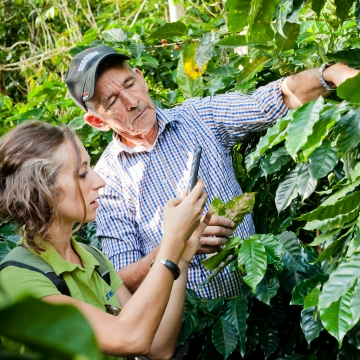
EPRU Prof Martine Visser´s research in the spotlight as 'Day Zero’ approaches
As Cape Town faces the worst drought in a century, the city may need to shut off running water to homes and businesses in an effort to crisis-manage the last remaining water in the metropole's dams.…
Ties that bind: Network redistributive pressure and economic decisions in village economies
In this paper, we identify economic implications of the pressure to share resources within a social network. Through a set of field experiments in rural Tanzania we randomly increased the expected harvest of the treatment group by the assignment of an improved and much more productive variety of maize.

With taps going dry, South African researchers “nudge” people to conserve water
Turn on the water tap in Cape Town, South Africa in March, and nothing will come out. For the Environment for Development researchers at the University of Cape Town, there’s nothing faraway about…
Fifth Chilean EfD Workshop on Environmental and Natural Resource Economics and Fourth Short Course to Policy Makers
Research Nucleus in Environmental and Natural Resource Economics at the University of Concepción is organizing the Fifth Workshop on Environmental and Natural Resource Economics, 5th and 6th October…

Need for improved reliability of electricity supply in Ethiopia
Energy is arguably one of the major challenges in developing countries. Much research has been done on energy production, consumption and access, however energy reliability has been given less focus.
Call for papers:Early-career Behavioral Economics Conference Bergen, 20-21 June 2018
On June 20-21, 2018, the Early-Career Behavioral Economics (ECBE) Conference will take place in Bergen, Norway. Following the success of the ECBE Conferences in 2015, 2016 and 2017, the 4th Early…

Green Growth, the New Key to Global Development
Colombian magazine Dinero interviewed EfD Senior Researcher Francisco Alpizar about Green Growth as the New Key to Global Development, with a special focus on Colombia. ‘When we talk about natural…

Behavioural Nudges for Water Conservation: Experimental Evidence from Cape Town
The City of Cape Town has been working with EPRU to find an evidence-based answer to which methods are most effective in encouraging more prudent water use by the public. Prof Martine Visser, Dr Kerri…

EfD at the OECD 2017 Conference on Behavioural Insights
EfD Central America Senior Researcher Francisco Alpizar participated in the OECD-Ten Conference: Behavioural Science in Public Policy: Being Green, Consumer Centric and with well-Functioning Markets…
Pagination
- Previous page
- Page 21
- Next page

